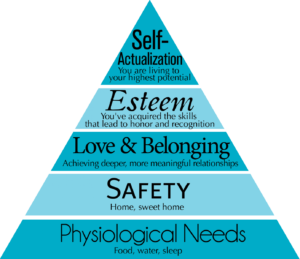Misaligned policies are making it very hard for employees to negotiate basic work-life demands, and could potentially lead to a global employee burnout crisis, a new study says.
Companies are undermining their own employee experience with antiquated attitudes about time off, productivity, and workload, according to a new study, “Engaging Opportunity: Working Your Way, ” released on June 11 by The Workforce Institute at Kronos Incorporate.
This outdated attitudes are making it very hard for employees to negotiate basic work-life demands, and could “potentially leading to a global employee burnout crisis,” the report said.
“In many respects, the traditional 9:00 a.m. to 5:00 p.m. working day is disappearing,” said Simon Porter, vice president, digital HR services, NGA HR and also a member of the Workforce Institute board. “Organizations that build a culture of trust – especially those that empower employees to work at the times or locations they find most beneficial – will benefit from stronger employee engagement, higher productivity, and improved retention,” Porter added.
“Engaged employees often recognize flexibility is a two-way street, which is why they willalso be more willing to adjust their own schedules to accommodate times of high demand that require extra or discretionary effort, off-hours work.”
Here are some highlights from the study:
Almost half of employees (47%) have had a time-off request rejected by their employer within the last 12 months
- Of the 47% who have had a time-off request rejected, one in four employees surveyed globally (26%) had a vacation request denied; about a fifth were not permitted to use personal time (22%) or sick time (16%); and 10% say their employer actually rejected a bereavement request.
- In the U.S., 21% of public safety employees have had a sick day request rejected, followed closely by 18% of retail associates. For manufacturing (23%) and healthcare (17%) employees, the most commonly rejected time-off request is the use of vacation time.
- Nearly half of all employees globally directly blame their manager (45%) when a time-off request is rejected, which could create an uncomfortable rift that further disengages employees. Blaming the manager is even more common in Mexico (49%), Australia and New Zealand (48%), Canada (46%), and Germany (46%).
- Canada, the U.K., and U.S. lead the world in workaholics, with 11% of survey respondents reporting they have not asked for any time off within the last year.
Less than half of employees (41%) globally believe preventing employee burnout is a top priority for their organization
- Nearly a third of employees (29%) surveyed say they are currently approaching a state of burnout and need their workload to change. The situation is most severe in France (42%) and Mexico (40%).
- About a third of employees (31%) globally believe their manager does not care if they burn out. In the U.S., where burnout is a hot topic, that drops to about a quarter of employees (27%).
- Older U.S. millennials1 (36%), as well as public safety (42%), logistics and transportation (35%), and retail employees (30%), feel most strongly that their managers do not care if they burn out.
- Three-quarters of employees (72%) say they try hard to avoid sick days, which may be a byproduct of stringent company policies around sick time, as 29% of survey respondents also say they’re expected to be at work even when they are ill. In fact, a quarter (25%) are required to report to work while ill so their manager can judge how sick they are.
- Access to sick pay is a barrier to rest and recovery: nearly half of employees in Mexico (45%) and France (43%) say they work while ill because they are not paid for sick leave. This is also true for a third (34%) of U.K. employees, as well as a quarter of those in Canada (27%), Australia/New Zealand (27%), and U.S. (22 %). In Germany, it drops even lower to just 19%.
Nine out of 10 employees globally (90%) think their organization can improve scheduling
- With an eye on technology, a third of employees surveyed globally (33%) want solutions that make it easier to swap shifts, seek coverage from colleagues, or opt into open shifts for more hours, especially through mobile phones and tablets.
- More than a quarter (28%) wish their organization would embrace self-scheduling, allowing employees to build their own schedules or select preferred shifts that make it easier to manage personal responsibilities outside of work.
- Employees are also frustrated with how long it takes managers to approve time-off and scheduling change requests (28%).
For more see Industry Week




